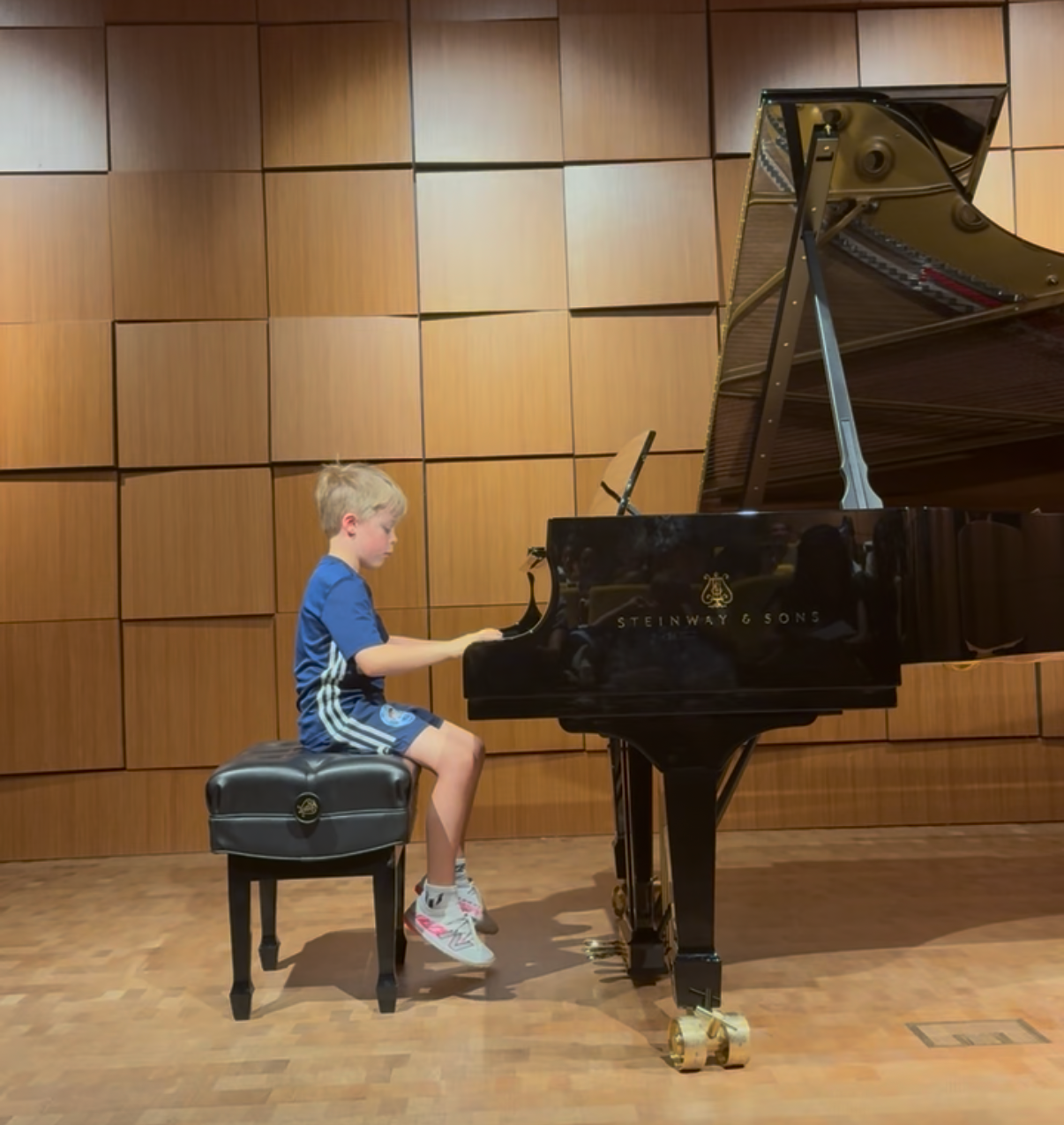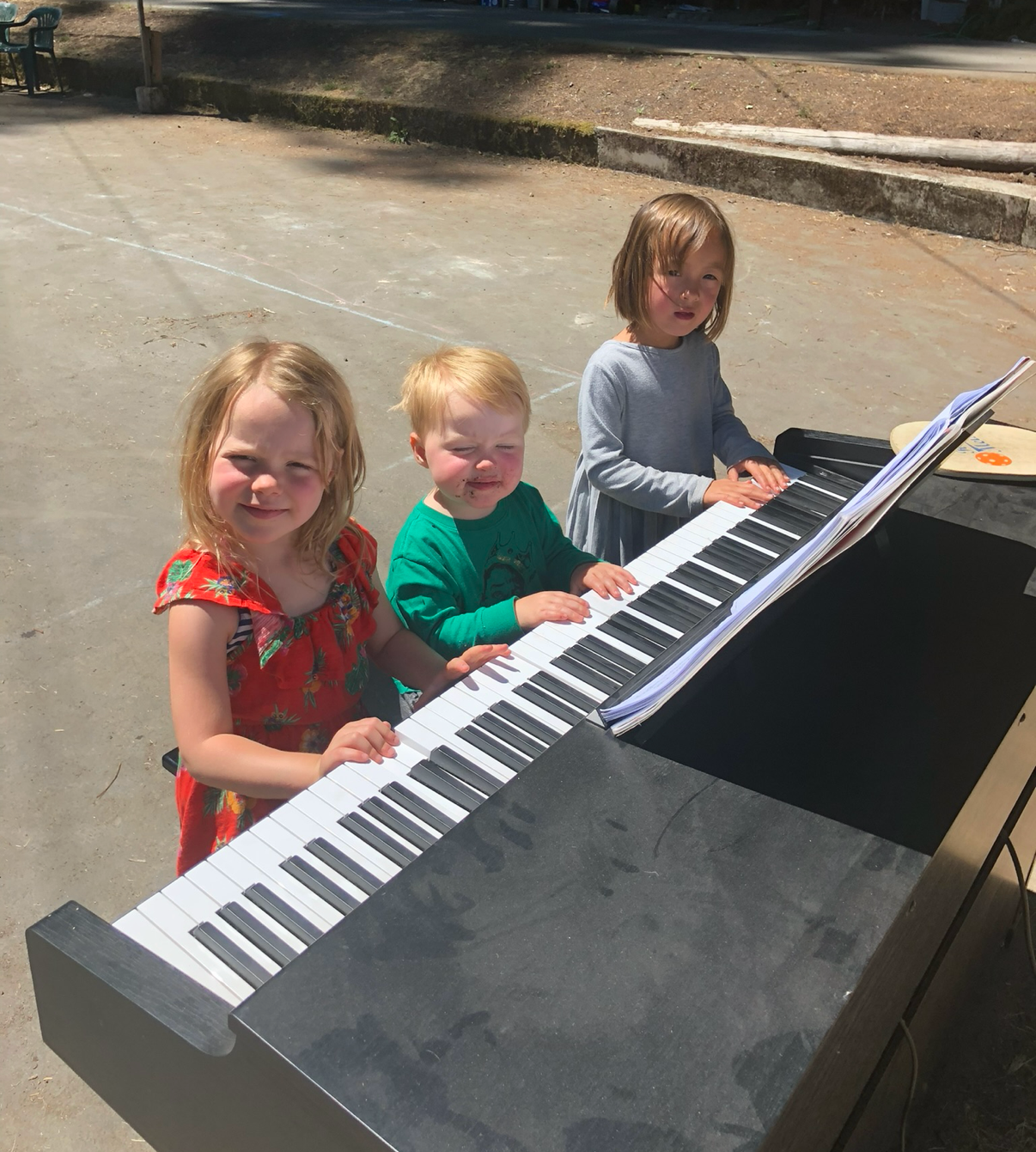“Most letters from a parent contain a parent’s own lost dreams disguised as good advice. My good advice to you is to pay somebody to teach you to speak some foreign language, to meet with you two or three times a week and talk. Also: get somebody to teach you to play a musical instrument. What makes this advice especially hollow and pious is that I am not dead yet. If it were any good, I could easily take it myself.”
— Kurt Vonnegut Letter to his daughter, Nanette, 20th September 1972 via Letters of Note
I wish I'd learned piano.
I wish I'd kept up with my French lessons.
I wish I'd learned to swim.
How often do you say something like this to yourself? Ruefully reflecting on skills or knowledge you once had access to - and walked away from?
Usually during childhood or adolescence, when your character had evolved just enough to assert control over your choices - and just enough to make terrible ones.
No doubt your parents fought you on some - and waved the white flag on others. Picking their battles. Choosing an easier life.
When I look at my own upbringing, the combination of strong academics and relative prowess on the rugby field meant that when I didn't like something, I pretty much got my way.
Learning Welsh - dropped because I didn't like the teacher and who speaks Welsh anyway?
Piano - quit after a single lesson because the house where I'd take lessons smelled, and the songs were stupid.
History - dropped because the teacher smelled. And honestly, who cares what happened in the past?
My parents didn't agree because they thought these were great strategic decisions. They agreed because I was acing school and captaining the rugby team. Why fight over piano when everything else was working?
And it's not like they let me run amok. I still had to go to elocution lessons - to fix a lisp and maybe soften (lose!) a Welsh accent which they felt might hold me back. Lo and behold, I ended up enjoying it, sticking at it for a few years and even earning some performance certificates from LAMDA!
Yet here I sit, thirty-odd years later, a Welshman in New York who can't speak Welsh. My sons have Welsh names I can't teach them to pronounce properly. The irony isn't lost on me.

I watch my younger son plonking away at the piano, reading music, pulling together familiar children's songs. I watch my other son learning his first chords on acoustic guitar, marvelling as his teacher plays Hey Jude or Wonderwall.

And I grind away each week in a French class, trying to make up for lost time, so I can actually converse with locals during our summers in France rather than mime my way through boulangerie transactions.
I realised two things this summer.
The first: my daughter has become un-parentable.
Well, not entirely - but the days of "because I said so" are over.
When I question if it's too hot to wear Uggs, the look I get could freeze hell.

At twelve, she's all eye-rolls and slammed doors. Negotiation and diplomacy are my only tools.
I have to frame things carefully - benefits, risks, potential outcomes. I love that she thinks for herself, that she has opinions. I even love that she stands up to me, however infuriating it can be.
But this leads me to my second realisation.
It came out of a conversation with another parent whose daughter is the same age as mine. When I asked how the new school term was shaping up—specifically about a maths programme I knew his daughter attended—he puffed his cheeks.
"They've doubled her programme. Two sessions a week now, twice the time commitment."
My first question: how did she react?
"She grumbled at first. But it's routine now. She just... does it. Sometimes complains about homework, but overall she gets that it's worthwhile."
Then he added: "Her younger sister's about to start the same programme."
I asked how that was going.
"Here's the thing—and this is the best part. She doesn't complain. She's watched her older sister do it for years. She just accepts it's part of what you do."
BOOM - there it was.
You only have a limited time in which to be a parent dictator.
To create structures and routines before outside influences - and your children's growing tastes and opinions - take over.
I'm not talking about tiger-parenting or overscheduling. I'm talking about foundational skills - the ones that compound over time.
Piano.
A second language.
Swimming.

These aren't hobbies; they're capacities. And the brutal truth? Kids don't always have the perspective to choose them.
My daughter quit piano at ten because practice was "boring." Fair enough.

But now, at twelve, watching her younger brother practice, she always wants a turn to jump on the keys and see what she can remember.
Or when she saw the extra maths work her brothers were doing one weekend, she remarked that she might struggle with some of those problems.
I'd shared with her that I regret not making her do the same programme. Nothing was said between us—but there was a knowing look. An almost wistful acknowledgement: she wished she'd done at their age what she'd resisted at the time.
Here's the paradox: we want our kids to be self-directed. To follow their interests. To have agency. But self-direction requires competence, and competence requires years of doing things you'd rather not do.
The dictator window isn't about control—it's about buying them options before they know they'll want them.
That period has definitely passed for my daughter in so many respects. But with my boys, I still have this opportunity, my older boy for not much longer, to be something more like a dictator about how they spend their time
It's easy to look back on our approach with our first child and see how much we bought into "let her do what interests her." Don't force too much. Her life will take its course.
But in hindsight, armed with my own regrets and my wife's, there's probably benefit in pushing back. In creating friction. In making your kids do some things despite regular complaint and resistance.
Because maybe in the long run, they'll thank you for it.
And even if they don't?
Skills like playing an instrument, reading music, speaking a different language, having a foundation in history - these things serve you.
They open doors you didn't know existed. They give you optionality when life inevitably shifts direction.
If I needed proof, my twenty-year-old nephew provided it. In New York City for a summer internship, he kicked a football around with my kids one afternoon.
Out of nowhere, he turned to my daughter: 'I wish my mum had forced me to learn piano. Or any instrument, really. She just let us quit whenever we wanted.'
My daughter looked at him, then at me. I said nothing. But the message landed.
The dictator window is closing - fast.
I don't want my boys resenting me at seven for making them practice scales. But I'm willing to risk it if it means they don't resent me at twenty for letting them quit.
Sometimes the greatest gift we give our children is the temporary discomfort of doing something they don't yet understand the value of.
That's not control. That's leadership.
And if they still resent me? At least they'll be able to do the therapy in French!